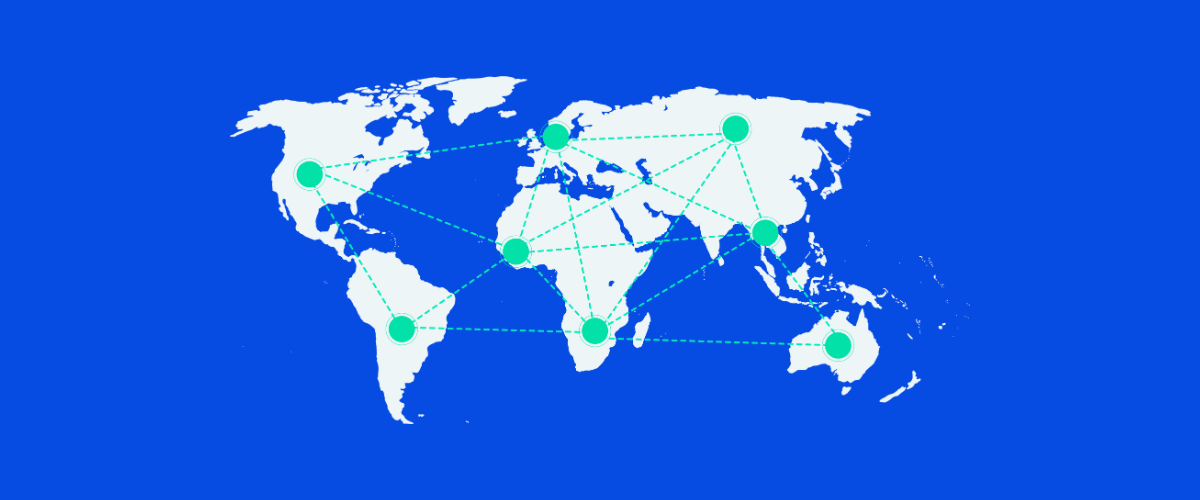The key to sourcing the right talent remotely
Since the demand for workplace flexibility is really high among the candidates, it is relatively easy to find and hire remote developers. There are dozens of hiring platforms focused on remote work, e.g. RemoteOK, FlexJobs, WeWorkRemotely, etc. And there are even more job search websites that also feature remote job opportunities, e.g. Hired.com and Indeed.com.
If you are looking for contractors for your project, you can also consider the following options:
- hiring freelance software developers on marketplaces like UpWork, Fiverr, TopTal or
- engaging with managed software development contractors/teams through platforms like Andela or YouTeam.
Some companies also prefer to research and reach out to the candidates directly using professional networks, such as LinkedIn. They often use tools like LinkedIn Sales Navigator to export professionals’ emails for direct contact. As for the startups, AngelList is a pretty popular hiring platform.
Another common practice is to create a strong community around your product like these and hire from it, as exemplified by Product Hunt, Zapier, Freecodecamp, and others. Moreover, many companies run engineering blogs, e.g. Airbnb and Netflix, or take an active part in the discussions on popular tech forums. As a result, they get tons of job requests directly from the candidates.
Although most companies agree that the best way to hire a great employee is through referral. Especially when your own employees bring in some of their friends or people they’ve worked with. Being from the same ‘environment’ or having a similar background makes it easier for them to integrate into your team.
Yet, when there are no candidates available in their network, startups don’t hesitate to use other options.
Where and how do you usually look for remote developers?
“We are looking through projects, we are looking through LinkedIn and just find people who we think are interesting. We try to email them and try to learn a little bit about them. We don’t spam anyone. We generally find someone like “Wow, this person worked on this library, they worked on this language, they did this – that’s really impressive, and, therefore, I’ll email them and talk to them”.


We also find candidates on Hacker News, on GitHub, on Twitter, really any place where people congregate. We find StackOverflow pretty solid in this regard.
At the same time, we’re also lucky to get a lot of inbound interest in our jobs. We have a large user base and they tend to be more techie, more knowledgeable around the industry, around APIs and integrations. And we really love it whenever candidates come to us and they already know what Zapier is and what it means to be.”
– Bryan Helmig, CTO and сo-founder at Zapier




Also, our close contacts are more than likely to be hard workers and trustworthy. As the old saying goes, thoroughbreds run with other thoroughbreds.”
– Michael Morton, TeamGantt




To add to that, we also want to get our job posts featured on Product Hunt too, since we think it would be a great way of finding people that would be a great fit (devs among many others) for us, but we’re still on the waiting list for that one :).”
– Aleksandar Đokić, Toggl




We also often find candidates via LinkedIn. Those are our top 3 sources to find remote devs.”
– Madhav Bhandari, HubStaff




Since we’re building a product that people in technology use, a lot of whom are on Product Hunt. So we can reach out to our community and hire people that are already actively participating and excited about Product Hunt. That’s one of the reasons we don’t post job ads. We have this indirect relationship, and it allows us to attract really good, talented people.”
– Ryan Hoover, founder of Product Hunt


Read more on how Product Hunt is running a distributed development team in our interview with Ryan Hoover.


“We typically post monthly on popular developer blogs (like Hacker News) and on the standard free job boards. What I’ve noticed though, is that we get a lot of referrals from members of our team (whether they are people who reached out to them over social media or people they know or worked with in the past).”


“We tend to look towards job boards and communities that can help lead us to a diverse range of candidates from a variety of backgrounds. Tech Ladies is a great example of a job board that we use because there are so many incredibly talented women developers and engineers there. That’s just one of the many we use!
Our process for hiring remote developers involves several different factors. First, we want to make sure that we are screening for applicants who possess a wide variety of skills and expertise as well as candidates from diverse backgrounds. We believe that incorporating various perspectives on our team makes us a much better company as a whole.
We also look for developers that show a great deal of self-motivation and autonomy. Working remotely comes with its own set of challenges and developers must be able to quickly adapt to what can be a challenging change.
Lastly, we look for developers that align with our company values. We want to ensure that we are hiring people that will be with us for quite some time!”


– Quincy Larson, Teacher at freeCodeCamp
![]()
![]()


What generally happens is people ask “How do I get hired at Infinite Red?” And there’s never been a good answer for that, just as there’s no good formula for making life-long connections. It just happens.
My favorite story is one of our designers, figuratively kicked in our door and said, “You’re going to hire me and this is why.” We did, and she’s proven to be one of our most successful employees, and we love seeing her advance her career with us. No way we could ever re-create or bottle something like that, nor would we want to.”
– Gant Laborde, Chief Technology Strategist at Infinite Red, Inc.








